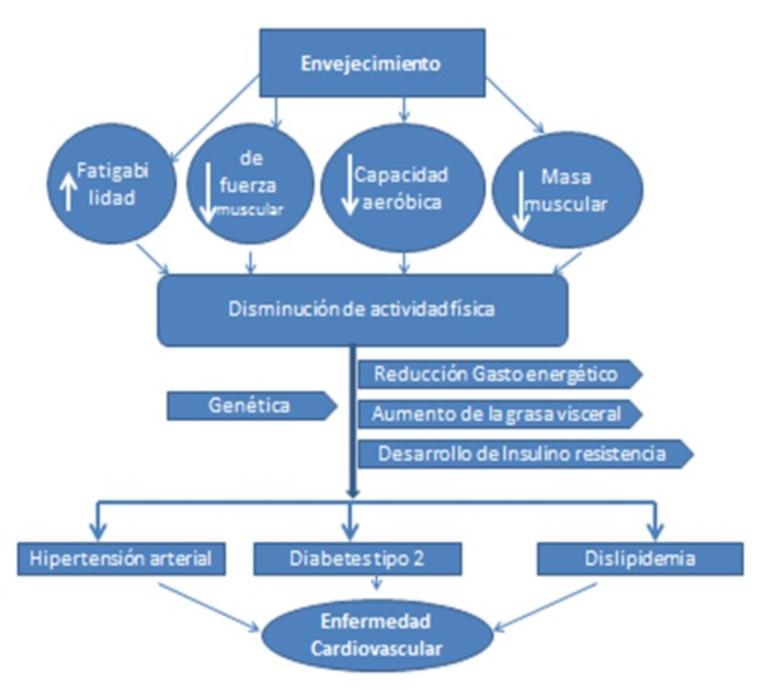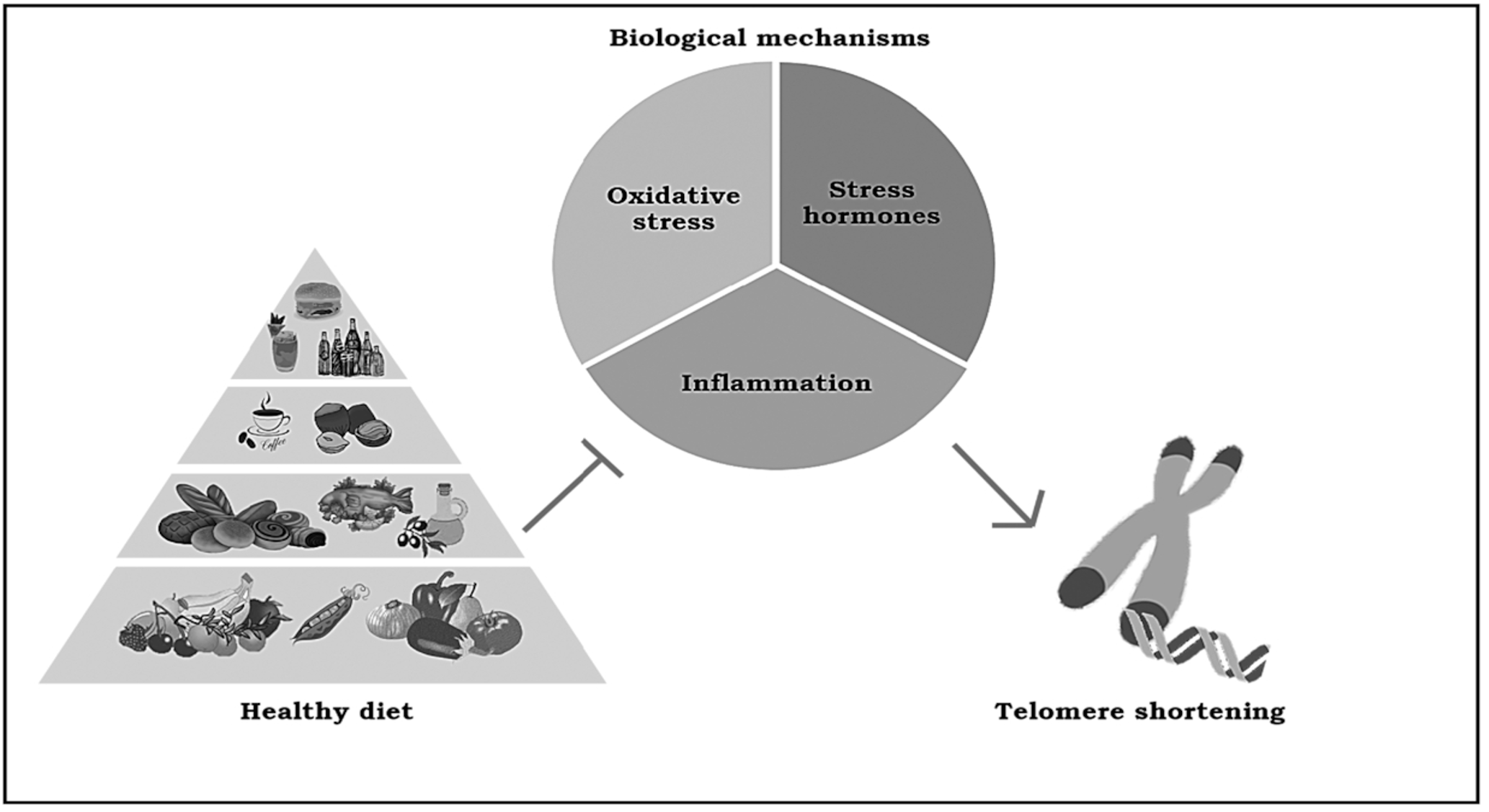Aging is a natural, progressive and irreversible process that affects the processes of digestion, absorption, utilization, and excretion of nutrients, impairing the quality of life.
New research suggests that a healthy diet may help slow down our cells’ aging. A new study published in the scientific journal Advances in Nutrition shows the benefits of a healthy diet and its effects on the human body, such as the association of longer telomeres.
Alejandro Monzó – Neolife Nutrition Unit
Aging conditions people’s dietary, nutritional, and culinary strategies.
Although each individual experiences aging with different intensity, it is characterized by the physiological decline of organs and systems, decreased functional reserve, increased frailty and vulnerability, the presence of chronic diseases, as well as increased risk of complications and death (1).
According to the World Health Organization (WHO), between 2015 and 2050, the percentage of the planet’s inhabitants over the age of 60 will almost double, from 12% to 22%. The extension of life expectancy offers opportunities; however, that depends to a great extent on a major factor, which is health (2). If older people can live additional years, but are dominated by a decline in physical and mental capacity, the implications for older people and for society are more negative..
People over the age of 65 face physical, psychological, and social problems, derived from biological changes that are typical of aging, and that may condition the ability to carry out natural and daily activities like eating (3).
In the aging process, there are certain factors that affect in one way or another the physiology of nutrition and feeding, modifying the nutritional state. (4):
- Physical changes: body composition changes with age, decreasing muscle mass and body water, increasing the proportion of fat, which leads to a reduction of basal metabolism. On the other hand, loss of bone massmay increase susceptibility to fractures. There is also a deterioration of physiological functions at all levels, especially in the digestive tract and teeth. Moreover, loss of taste, smell, sight, and hearing may affect food choice and preparation, and be associated with loss of appetite. It is worth noting that decreased physical activity results in lower energy consumption, which may lead to nutrient deficiencies.
- Psychosocial changes: there are two situations that usually accompany the life of the elderly, isolation both social and sometimes from their own family, and depression. Loneliness and depression have a very negative effect on the nutritional state.
Good nutrition is essential for overall health and well-being, but older people are at risk of poor and/or insufficient nutrition. Malnutrition is a serious health problem, which may lead to various health problems, such as a weak immune system (which increases the risk of infections), muscle weakness and lower bone mass (which may lead to falls and fractures), poor wound healing, a higher risk of hospitalization and, ultimately, a higher risk of death(1, 5).
Frailty and sarcopenia (understood as the loss of muscle mass and function) overlap (Figure 1). Most of the elderly who are frail have sarcopenia, and some elderly with sarcopenia are also frail (6). In all this, the nutritional state is involved, and the proper healthy diet may delay premature aging and provide quality of life (1,3,4).

Additionally, new research published in Advances of Nutrition, shows promising results, where healthy diets that include a high content of fruits, vegetables, and nuts, as well as other foods rich in antioxidants, were associated with lower telomere shortening(7). Telomere length is highly correlated with chronological age and metabolic status (Figure 2).

Thus, people with shorter telomeres have a higher risk of chronic disease and mortality. Telomere health and the consequent prevention of cellular aging involves a multifactorial process involving several factors, like physical activity, stress, rest, and environment. The authors point out that controlling dietary factors benefits human health, preventing age-related diseases such as diabetes, and neurodegenerative and cardiovascular diseases.
In short, advanced age is a period of accumulation of deterioration and decline in functional capacities. A proper nutrition is one of the ways to optimize physical fitness, as well as overall health. Therefore, we should take into account a series of guidelines, in order to improve the quality of life and health(4):
- A healthy, varied, and balanced diet, together with an increase in physical activity, have a very positive impact on health and well-being, and can contribute significantly to improving your quality of life.
- It is advisable to maximize your activity, within your possibilities and the state of your health, to increase your energy expenditure so that you can consume more healthy foods without the risk of gaining weight.
- Eat between four to five meals a day, with a good base of quality foods and raw materials, especially of vegetable origin, like vegetables, fruits, and legumes.
- You should avoid empty calories, foods that contain a lot of energy but are very poor in nutrients, such as sweets, pastries, sugary drinks, chips, and ultra-processed foods in general.
- Good hydration is important to avoid dehydration. Some people lose the ability to feel thirst as they age.
- In the case of sensory problems, try adding color and texture to the food to make it more interesting. If you are not eating enough, it is important to concentrate and enrich the dishes to obtain more nutrients and calories.

Finally, here at Neolife, we wish to convey the importance of the role of food in one of the vital cycles of life, that is advanced age. Disease prevention and quality of life gains translate into greater physical and mental well-being, where healthy, minimally processed food choices, along with good physical activity and exercise are essential. Our medical-nutritional team treats each particular case individually, with the ultimate goal of offering a personalized nutrition plan based on the needs of the individual, achieving a healthy aging process.
BIBLIOGRAFÍA
(1) De Luis Román, D.A. Bellido Guerrero, D. García Luna, P.P. Olivera Fuster, G. (2017). “Dietoterapia, nutrición clínica y metabolismo”. Tercera edición. Sociedad Española de Endocrinología y Nutrición. Grupo Aula Médica, S.L. Madrid, España.
(2) (2018). “Ageing and health”. World Health Organization. URL: https://www.who.int/news-room/fact-sheets/detail/ageing-and-health
(3) Mahan L.K. & Raymond J.L. (2017). “Krause. Dietoterapia”. 14ª Edición.
(4) Ortega A. R. & Requejo M. A. (2015). “Nutriguía: manual de nutrición clínica”. 2ª Edición. Editorial médica Panamericana.
(5) Theimer, S. (2018). “Consejos de salud: la tercera edad y la nutrición”. Mayo Clinic. URL: https://newsnetwork.mayoclinic.org/discussion/consejos-de-salud-salud-en-adultos-mayores/
(6) Cusumano, A.M. (2015). “Sarcopenia en pacientes con y sin insuficiencia renal crónica: diagnóstico, evaluación y tratamiento”. ANBA. Vol. 35 (1). URL: https://www.revistarenal.org.ar/index.php/rndt/article/view/134/643
(7) Galiè, S. Salas-Salvadó, J. y otros. (2020). “Impact of Nutrition on telomere health: systematic review of observational cohort studies and randomized clinical trials”. Advances in Nutrition, Vol. 11 (3): 576-601. URL: https://academic.oup.com/advances/article/11/3/576/5613358

